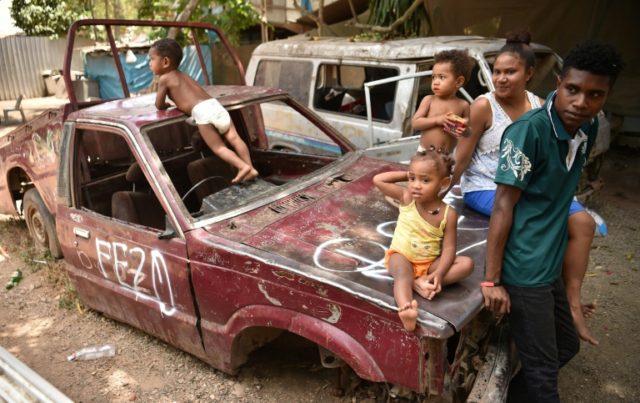Port Moresby (AFP) – As Papua New Guinea prepares to make its international summit hosting debut, there are lingering concerns about whether one of the Pacific’s poorest countries can afford the cost, and if it is able to take advantage of its time in the sun.
Barefoot betel nut vendors in Port Moresby’s main market expressed confusion on Thursday about the political circus that has arrived on their shores, as guards cleared nearby roads for presidents and CEOs from around the Asia-Pacific region.
Few of the capital’s residents had the faintest idea about what will be discussed when leaders sit down for the Asia-Pacific Economic Cooperation (APEC) summit on Saturday and Sunday, or what will have changed by the time they leave.
“Will APEC make us rich like other nations?” asked Harriette Jack, 68. “Comparing to other nations, we are not close.”
Aid from China helped build glistening convention centres and repave roads ahead of the meeting. Australia pitched in with military and police assistance that will help secure the summit.
But despite promising an APEC on the cheap, the government also bought 40 Maseratis to ferry delegates around, underscoring the high price tag that comes with playing on the global stage.
That outlandish expense comes at a time the developing nation of eight million people battles a polio outbreak and the resurgence of malaria, and struggles to pay its teachers.
“It’s a big risk to be taking to host this summit,” Jonathan Pryke of Australia’s Lowy Institute told AFP. “It has pushed the country to the limit in terms of the capacity of the bureaucracy, in terms of the cost.”
The government has declared a public holiday on the eve of the summit, but people in the Port Moresby suburb of Hohola say many children do not go to school anyway because their families cannot afford the expense.
“We know that very big people are coming like… presidents and prime ministers so we are looking forward to some kind of improvement in our lives,” schoolteacher Freddie Mupa told AFP.
“It’s crazy because there’s a lot of money (spent).”
– ‘A burden’ –
Papua New Guinea agreed to host the summit five years ago, when the country was enjoying double-digit growth and was hoping for a windfall from high oil and gas prices that have since tanked.
However, some Papua New Guineans are upbeat about the summit, milling outside the conference venues in their red, yellow and black national shirts.
“It’s once in a lifetime that (this) occurs so we are grateful I would say and blessed to have this event in our country,” teacher Jesset Gilimusi told AFP, giggling with excitement.
“There are a lot of issues that we have but when it comes to things like this, we have to put it aside.”
It is in the same vein that Prime Minister Peter O’Neill urged citizens and visitors on Wednesday to “forget about the Maseratis and possibly enjoy the country”.
The meeting will boost trade and investments that will benefit the nation, he added.
On Friday, O’Neill will play host to his first visitor, Chinese President Xi Jinping, whose country’s investments in Papua New Guinea are making some locals nervous.
“I think it will be a burden for us. If those are just fundings out of their good hearts then it’s okay but if we have to repay them, then it’s a lot,” said land surveyor Otte James.
As world leaders tackle the worsening tariff war between the US and China as well as a massive trans-Pacific trade deal, residents say many of the topics are far removed from their daily reality.
Mupa, the teacher who laments not receiving his wages, says the summit’s message of harnessing inclusive opportunities does not resonate with him.
“If the world is advanced, why should we be like this all the time?”

COMMENTS
Please let us know if you're having issues with commenting.